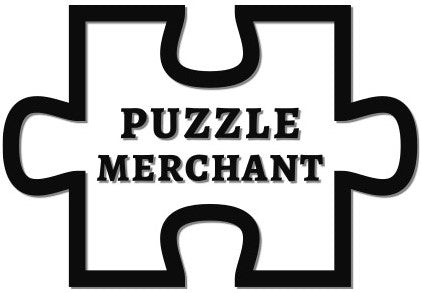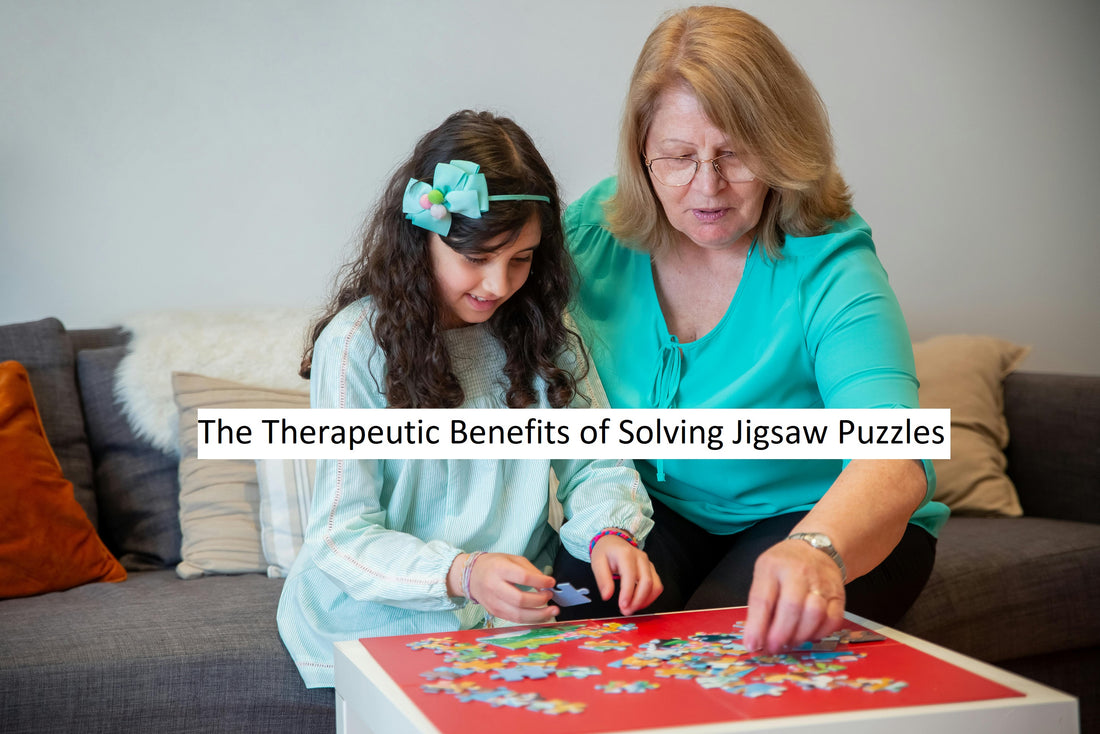Introduction:
In a fast-paced world dominated by technology and constant connectivity, finding moments of tranquility and mental rejuvenation is becoming increasingly challenging. Amidst this hustle and bustle, a seemingly simple activity has emerged as a powerful tool for relaxation and cognitive enhancement – solving jigsaw puzzles. In this article, we will delve into the therapeutic benefits of engaging in this age-old pastime, exploring how it goes beyond mere entertainment to promote mental well-being and cognitive health.
Historical Roots of Jigsaw Puzzles:
To truly appreciate the therapeutic benefits of solving jigsaw puzzles, it's essential to understand their historical roots. Originating in the 18th century, the first puzzles were handcrafted maps mounted on wood and cut into pieces to teach geography. Over time, puzzles evolved into the diverse and intricate forms we know today, captivating generations and transcending cultural boundaries.
Stress Reduction and Relaxation:
One of the primary therapeutic benefits of solving jigsaw puzzles lies in their ability to reduce stress and induce a state of relaxation. As individuals immerse themselves in the process of fitting together uniquely shaped pieces, their minds shift away from the pressures of daily life. The repetitive and focused nature of puzzle-solving triggers a relaxation response, promoting a sense of calm and mental well-being.

Cognitive Exercise and Brain Health:
Engaging in jigsaw puzzles is akin to a workout for the brain. The process requires attention to detail, pattern recognition, and problem-solving skills. Regular mental exercise through puzzle-solving has been linked to improved cognitive function, including enhanced memory, increased attention span, and heightened spatial reasoning abilities. For individuals of all ages, from children to seniors, jigsaw puzzles offer an enjoyable way to keep the mind sharp.
Development of Patience and Perseverance:
Completing a jigsaw puzzle is not always a quick task; it requires patience and perseverance. The journey of sorting and connecting pieces mirrors the challenges of real-life problem-solving. As individuals confront the complexity of a puzzle, they learn to persist in the face of difficulties, fostering resilience and developing a valuable life skill.
Social Connection and Bonding:
Jigsaw puzzles are not limited to solo endeavors; they provide an excellent platform for social interaction and bonding. Whether with family, friends, or fellow puzzle enthusiasts, collaborative puzzle-solving fosters communication, teamwork, and shared accomplishment. This social aspect adds another layer to the therapeutic benefits, as it enhances the overall well-being of individuals through meaningful connections.

Mindfulness and Present Moment Awareness:
Solving a jigsaw puzzle requires a deep level of concentration and focus. This immersive experience encourages mindfulness, a state of being fully present in the moment. By letting go of distractions and embracing the puzzle at hand, individuals can achieve a meditative state that promotes mental clarity and stress relief.
Emotional Regulation and Mood Enhancement:
The sense of achievement derived from completing a challenging puzzle triggers the release of dopamine, the brain's "feel-good" neurotransmitter. This chemical response contributes to an improved mood and a sense of accomplishment. Moreover, the structured and predictable nature of puzzle-solving provides a calming influence on emotional states, making it an effective tool for emotional regulation.
Alzheimer's and Dementia Prevention:
Research suggests that engaging in mentally stimulating activities, such as solving puzzles, may play a role in preventing cognitive decline and neurodegenerative diseases like Alzheimer's. Regular cognitive exercise helps build a cognitive reserve, potentially delaying the onset of symptoms and preserving brain function in later years.
Choosing the Right Puzzle for Therapy:
Not all puzzles are created equal when it comes to therapeutic benefits. The choice of puzzle complexity, image content, and the number of pieces can influence the extent of cognitive engagement and emotional satisfaction. Tailoring the puzzle to individual preferences and skill levels ensures a more personalized and effective therapeutic experience.

Conclusion:
In conclusion, the therapeutic benefits of solving jigsaw puzzles extend far beyond mere entertainment. As a time-honored pastime with deep historical roots, puzzles offer a unique blend of cognitive stimulation, emotional fulfillment, and social connection. From stress reduction and improved cognitive function to enhanced patience and resilience, the positive effects of puzzle-solving are both diverse and profound. As individuals seek ways to balance the demands of modern life, the simple act of connecting puzzle pieces emerges as a powerful tool for promoting mental well-being and achieving a harmonious state of mind. So, the next time you consider leisure activities that contribute to your overall health, remember that the solution might just be a puzzle away.
About the writer: Will Roya is a lifelong gaming and puzzle enthusiast. He is the founder of Puzzle Merchant and author of the book Card Night.

Last update date: 2/27/24

